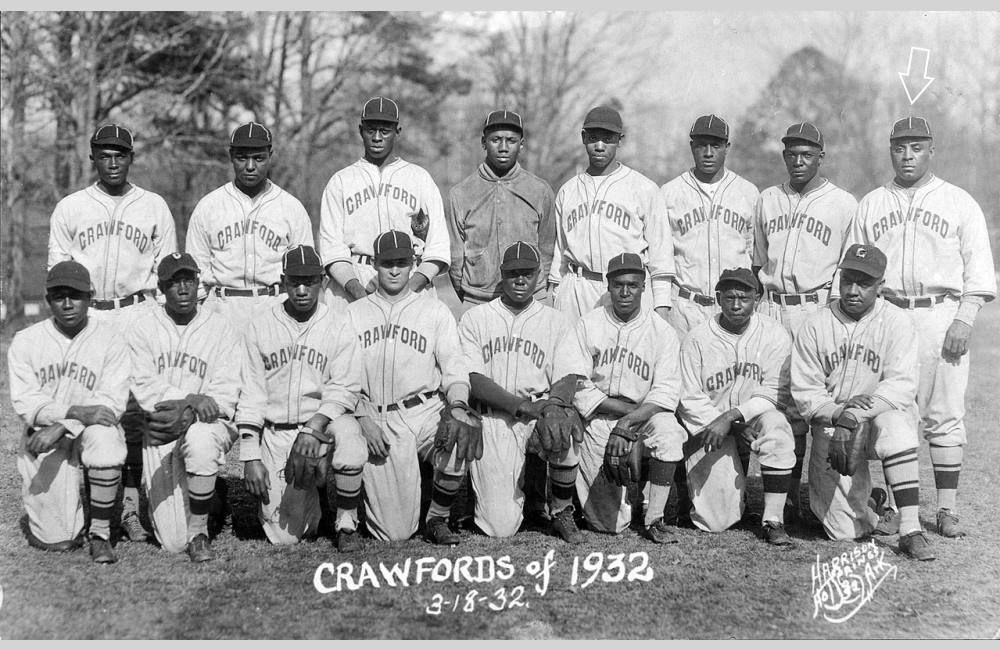Oscar Charleston’s stellar professional career offers fans a chance to learn what one of the best can do over a long career. He played the game with an amazing combination of power, speed and defensive skills. However, his career also is a sobering reminder of the impact of Major League Baseball’s unjust policy that kept Black players out of league until the 1940s.
Experts consider Charleston one of the great baseball players of all time. He also never played one inning in MLB. He spent his entire career in the Negro Leagues, most notably with the Pittsburgh Crawfords, and playing in Cuba. To name just two of his amazing accomplishments, Charleston retired with a .364 lifetime batting average and a .449 on base percentage.
Baseball statistician and writer Bill James once compared Charleston’s career to that of famous MLB players such as Mickey Mantle, Joe DiMaggio and Willie Mays. He wrote: “Oscar Charleston probably rates right with them. Some say he was better. It’s hard to imagine how anyone could have been better, but Charleston, in a sense, put Mays and Mantle together.” James ranked Charleston as the fourth greatest baseball player of all time.
The Baseball Hall of Fame inducted Charleston in 1976, 22 years after his death. Here’s an overview of where he came from and his baseball accomplishments.
Oscar Charleston’s Early Life
Charleston was born in Indianapolis on Oct. 14, 1896. As a kid, he played sandlot baseball and also became a batboy for the local Negro League club, the Indianapolis ABCs. Like many of his Negro League contemporaries, little is known about Charleston’s early life.
Dr. Jeremy Beer made Charleston the focus of a 2019 biography. He called it, “Oscar Charleston: The Life and Legend of Baseball’s Greatest Forgotten Star.” Beer writes that no one ever interviewed Charleston or his family at any length. Also, neither Charleston nor his family ever wrote about his personal life.
Beer manages to put together details about his life from a collection of scrapbooks and photo albums kept by Charleston that no researcher had gone through before. Charleston grew up poor, with his family constantly moving to new homes in the Indianapolis area. He completed school only through the eighth grade.
At the age of 15, Charleston he lied about his age and enlisted in the U.S. Army. He served in the Philippines as part of Company B in the 24th Infantry Regiment. He also ran track and played baseball for the regiment’s teams.
Charleston’s Professional Baseball Career
In 1915, Charleston came back to Indianapolis and began playing for the ABCs as a centerfielder. His immense talents were on display from the start. He was a power hitter who could spray hits to every part of the field. He also could play small ball, with excellent bunting skills and blinding speed on the basepaths.
Defensively, he was so fast he could play a shallow centerfield and still run down almost every hit. He also had a powerful arm. To go along with those talents, Charleston also had “an aggressive demeanor and will to win,” according to the Hall of Fame.
Researchers continue to work until this day to put together accurate statistics from the Negro Leagues. But some of the highlights of Charleston’s career include the following.
His best year: In 1925, playing for the Harrisburg Giants of the Eastern Colored League, Charleston hit .427, with 20 home runs, 97 RBI and 17 stolen bases.
The 1935 Pittsburgh Crawfords: Charleston started to both play and manage in the mid-1920s. He managed the 1935 Pittsburgh Crawfords team that most consider the greatest single Negro League of all time. The team won 51 games in an 81-game season and featured four future Hall of Famers: Charleston, Cool Papa Bell, Josh Gibson and Judy Johnson.
Winter Ball in Cuba: Official stats are hard to come by, but researchers believe that in nine years of winter ball in Cuba, Charleston put up numbers that equaled what he accomplished in the United States.
Against MLB pitching: In exhibition games against MLB players, Charleston hit .326. It’s likely this meant a lot to him. According to Beers, Charleston had clipped and saved a newspaper account from 1920 that compared him to Ty Cobb. He also saved another that noted when the Negro League’s St. Louis Giants bought his contract in 1921, he was worth more than Babe Ruth or Rogers Hornsby.
Role in breaking color barrier. Brooklyn Dodgers General Manager Branch Rickey hired Charleston as a scout in the 1940s, the first Black man in this role in MLB (Charleston stopped playing in 1941 at the age of 44). Most experts believe Charleston played a key role in finding talent in the Negro Leagues for Rickey, including Jackie Robinson.
It’s impossible to look at the career of Oscar Charleston without considering racism and the injustice of keeping Black players out of Major League Baseball. No one will ever know what Charleston could have accomplished as an MLB player. But Buck O’Neill, who played in the Negro League and later became a scout in MLB, put it simply.
“The greatest MLB player I ever saw was Willie Mays. But the greatest baseball player I ever saw was Oscar Charleston.”


Leave A Comment